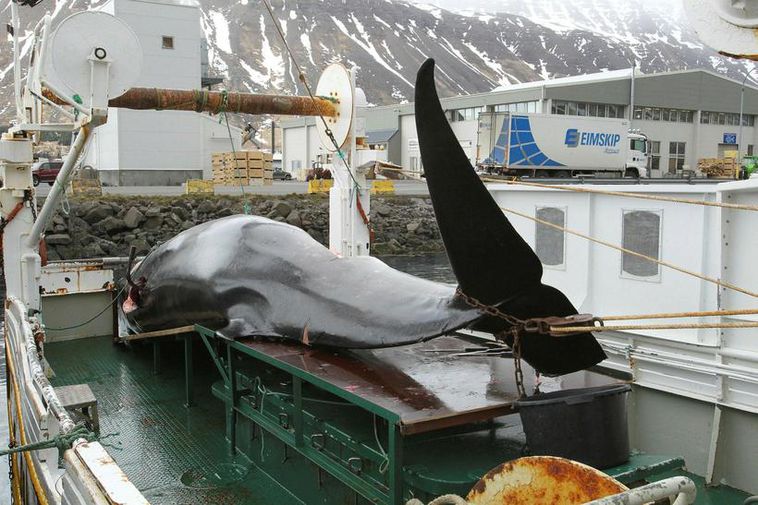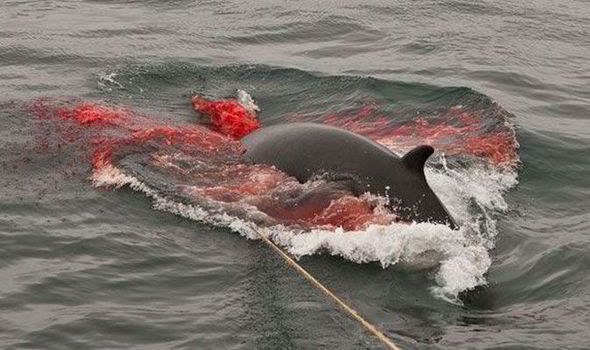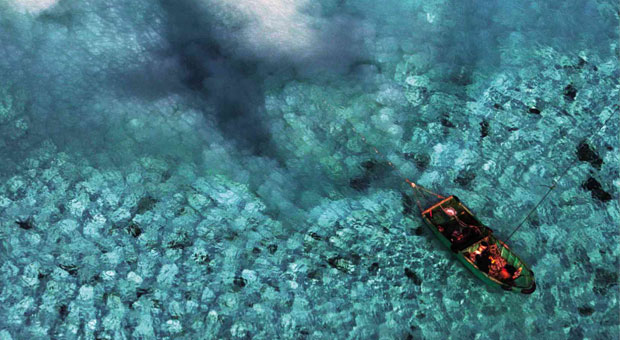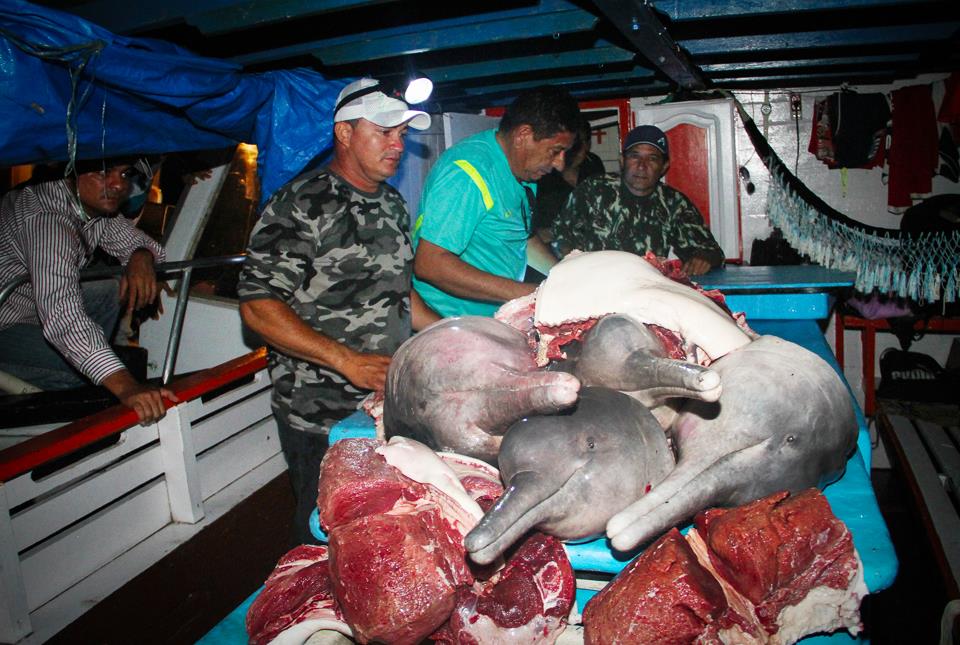Japan will resume hunting in its waters in July but will end controversial expeditions to the Southern ocean.
Japan is to leave the International Whaling Commission and resume commercial whaling for the first time in more than 30 years, the government said on Wednesday, in a move that has drawn international criticism.

A minke whale illed by Japanese whaling fleet
The country’s fleet will resume commercial operations in July next 2019, the government’s chief spokesman, Yoshihide Suga, said of the decision to defy the 1986 global ban on commercial whaling.
Suga told reporters the country’s fleet would confine its hunts to Japanese territorial waters and exclusive economic zone, adding that its controversial annual expeditions to the Southern Ocean – a major source of diplomatic friction between Tokyo and Canberra – would end.
He said Japan would officially inform the IWC of its decision by the end of the year, which will mean the withdrawal comes into effect by 30 June.
Media reports last week that Japan was about to pull out of the 89-member commission sparked an angry reaction from the Australian government and conservationists.
In a joint statement on Wednesday, Australia’s foreign minister Marise Payne and the environment minister, Melissa Price, said the Australian government was “extremely disappointed” that Japan was withdrawing from the commission and resuming commercial whaling.
“The International Whaling Commission plays a crucial role in international cooperation on whale conservation,” they said.
“The commission is the pre-eminent global body responsible for the conservation and management of whales and leads international efforts to tackle the growing range of threats to whales globally, including by-catch, ship strikes, entanglement, noise, and whaling.
“Their decision to withdraw is regrettable and Australia urges Japan to return to the Convention and Commission as a matter of priority.”
Caught On Camera: How Iceland Is Slaughtering Endangered Blue Whales
Greenpeace Japan accused Japan of timing the announcement to avoid criticism.
“It’s clear that the government is trying to sneak in this announcement at the end of year, away from the spotlight of international media, but the world sees this for what it is,” its executive director, Sam Annesley, said. “The declaration today is out of step with the international community, let alone the protection needed to safeguard the future of our oceans and these majestic creatures. The government of Japan must urgently act to conserve marine ecosystems, rather than resume commercial whaling.
“As a result of modern fleet technology, overfishing in both Japanese coastal waters and high seas areas has led to the depletion of many whale species. Most whale populations have not yet recovered, including larger whales such as blue whales, fin whales and sei whales.”
The Australian Marine Conservation Society said the decision to halt the Antarctic hunt would be “welcome and long overdue”. Its chief executive, Darren Kindleysides, called on the Australian government to demand the Japanese fleet left immediately rather than at the end of its normal hunting season in February or March.
“Australians have been fighting for decades to get the whalers out of the Antarctic,” Kindleysides said. “However, it would be a bittersweet victory if it comes with unchecked commercial whaling by Japan in their own waters, and their leaving could damage the future of the IWC itself.”
Wednesday’s announcement had been widely expected after Japan recently failed to win IWC support for a proposal to change the body’s decision-making process – a move that would have made it easier for Japan to secure enough votes to end the commercial whaling ban, which went into effect in 1986 to protect dwindling whale stocks.
Japan argues that the moratorium was supposed to be a temporary measure and has accused a “dysfunctional” IWC of abandoning its original purpose – managing the sustainable use of global whale stocks.
“I support the government’s decision” to withdraw, Itsunori Onodera, a former defence minister who advises the ruling Liberal Democratic Party on fisheries, told public broadcaster NHK. “I have attended IWC meetings several times in the past, and I was struck by their extremely biased views. The IWC has become a dysfunctional organisation.”
Japanese fisheries officials claim that populations of certain types of whale – such as the minke – have recovered sufficiently to allow the resumption of “sustainable” hunting.
It has used a loophole in the ban to hunt a certain number of whales for what it claims is scientific research. Byproduct from the hunts is sold on the domestic market, although Japan’s appetite for whale meat has declined dramatically since the postwar years, when it was an important source of protein.
The country ate 200,000 tons of whale meat a year in the 1960s, but consumption has plummeted to about 5,000 tons in recent years, according to government data.
Japan will join Iceland and Norway in openly defying the ban on commercial whale hunting.
Source: Guardian
BREAKING: Japan’s Death Ships Left For Whaling To The Arctic
Dead sperm whale found in Indonesia had ingested 6kg of plastic






